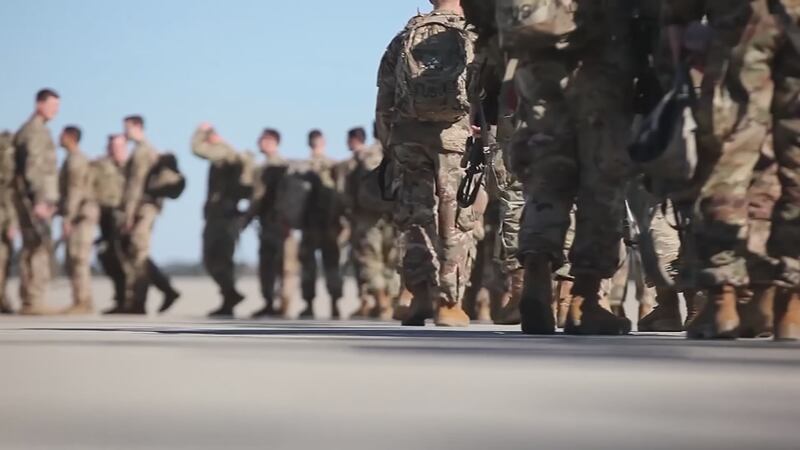There’s a push to close the gap between the number of active-duty service members and their families who need help paying for food, and those who actually qualify for a military food assistance program.
Much of it comes down to how food and housing assistance for military service members and their families are calculated.
The Basic Needs Allowance (BNA) provides monthly assistance to eligible low-income service members with dependents.
According to a Defense Department study last year, 24 percent of all active-duty service members experienced food insecurity at some point within 12 months, which totaled more than 286,000 affected individuals.
Yet, fewer than 3,000 service members qualify for the BNA, according to lawmakers.
“The reality is people are seeking out this benefit and seeking the support, but then they’re being told they’re ineligible,” said Shannon Razsadin, President and Executive Director of the Military Family Advisory Network. “It puts families in a really difficult spot of, I need help. My family needs support. But because we’re in the military, because we have this basic allowance for housing, I’m essentially being told that we’re ineligible.”
That’s why a group of bipartisan lawmakers in both chambers sent a letter to key Congressional leadership tasked with crafting defense legislation, known as the 2024 National Defense Authorization Act (NDAA).
They want the finalized 2024 NDAA to separate the military housing allowance from the food allowance so that more service members in need can qualify for help.
More than a dozen lawmakers signed the letter including Sen. Tammy Duckworth (D-IL), Rep. Jimmy Panetta (D-CA), Sen. Lisa Murkowski (R-AK), Rep. Cathy McMorris Rodgers (R-WA), Sen. Dick Durbin (D-IL), Sen. Patty Murray (D-WA), Sen. Richard Blumenthal (D-CT), Sen. Kirsten Gillibrand (D-NY), Sen. Angus King (I-ME), Sen. Cory Booker (D-NJ), Sen. Raphael Warnock (D-GA), Sen. Peter Welch (D-VT), Sen. John Fetterman (D-PA), Rep. Susan Wild (D-PA), Rep. Jill Tokuda (D-HI), Rep. Gwen Moore (D-WI), Rep. Mike Levin (D-CA), Rep. Marilyn Strickland (D-WA), Rep. Sara Jacobs (D-CA), and Rep. Sanford Bishop Jr. (D-GA).
In the letter, they wrote: “The most significant issue limiting the reach of this program is the counting of the Basic Allowance for Housing (BAH) as income for most servicemembers. Food insecurity is a problem that impacts servicemembers at every duty station in the United States, and BAH should be categorically excluded as counted income for the BNA, as has been recommended with broad bipartisan support in House-passed NDAA bills during the past three cycles. This common-sense adjustment to the eligibility guidelines for the BNA will help ensure the majority of military families who struggle with food insecurity are able to access this critical support.”
“The bottom line here is that we’re trying to increase the amount of money that families have in their possession so that they can afford housing and they can afford food,” Rep. Marilyn Strickland (D-WA) told our Washington News Bureau about the letter.
Lawmakers and military advocates argue making sure military families have access to enough food is essential to keeping us all safe.
“We talk about readiness for military families, this is a basic part of readiness,” said Strickland.
“There is no scenario where if a family is struggling to put food on the table that the service member is really going to be able to focus on the mission at hand,” said Razsadin.
We reached out to all four offices of the House and Senate committees that received the letter for a response but we haven’t heard back yet.
©2023 Cox Media Group








